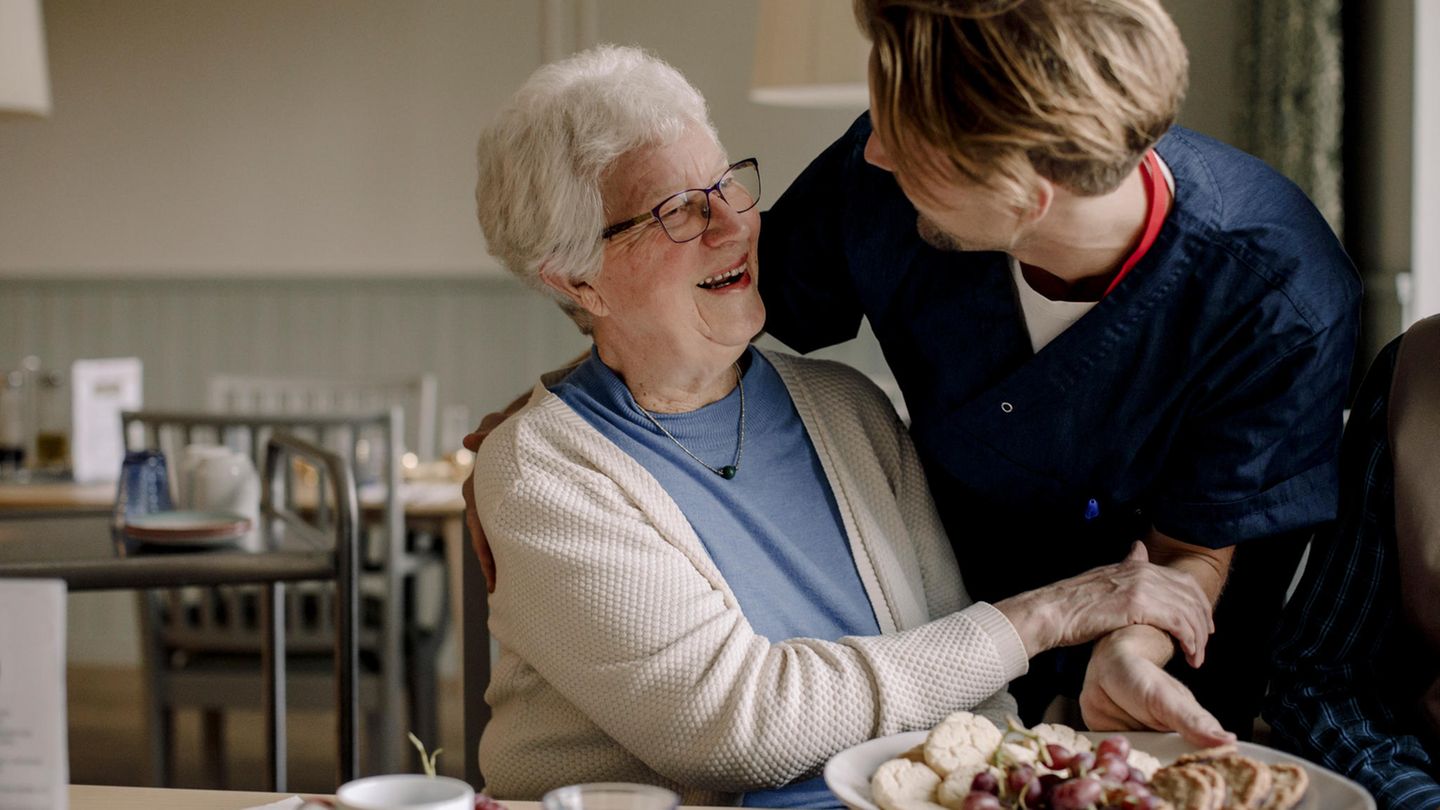Opinion
Nursing care insurance and the curse of success
Copy the current link
The nursing care insurance reform has improved many things. But it costs and costs and costs. This is also shown by the Barmer care report 2024 published today.
Ever heard of King Pyrrhus? In ancient times he was a Greek king and general. Once when he had defeated the Romans and looked into the empty ranks of his soldiers, he said: “One more victory and we are lost.” Since then, his name has lived on as a warning of hard-won success.
Nursing care insurance is a modern “Pyrrhic victory” (Editor’s note: King Pyrrhus and Pyrrhus Victory have different spellings). Nothing shows this better than a new report from the Barmer substitute fund. Nursing care insurance is a success story that has improved many things, but has also become extremely expensive.
Reform of long-term care insurance: People in need of care live better today than before
What exactly it’s about: In 2017, Angela Merkel reformed long-term care insurance. Three “care levels” became five “care levels”. Since then, more people have received benefits, especially if they have intellectual disabilities or dementia. The plan worked. Those in need of care live better today than before. This is shown by a comparison of recently deceased and currently living people in need of care: the old rules applied to the first group, the reform applied to the second group. The first group lived an average of 3.9 years after the need for care began, the second group probably lived 7.5 years.
There is another good news. People who work in care no longer earn pocket money. Between 2015 and 2023, unskilled workers received an increase of 59 percent, skilled workers received 53 percent more – while ordinary citizens only received an additional 23 percent. A geriatric care specialist earns around 3,900 euros a month – almost 400 euros more than an average skilled worker. We learn: Those in need of care live better and those working in care earn better.
But before everyone bursts into cheers. The gain in quality of life has come at a high price. The costs per person in need of care grew by 50 percent to an average of 76,000 euros, mainly because more people are receiving care allowance in order to cope with everyday life or to support caring relatives.
It is primarily those affected who pay for the higher wages. Home residents are digging deeper and deeper into their pockets. The average personal contribution is 2,351 euros per month, almost 160 euros more than a year ago – even though the state is contributing billions. With an average pension for men in western German states of 1,436 euros and for women of 886 euros, as well as in eastern German states of 1,342 euros (men) and 1,081 euros (women), that is a lot of money. Those who have something to spare can afford a savings account or life insurance – but 40 percent of households own almost nothing. According to a study by the trade union-affiliated institute WSI, Germany has also become even more unequal over the last ten years: the gap between rich and poor has continued to grow.
Rising costs: More than 100 nursing homes have folded in the past two years
Homes and outpatient services are also struggling with rising costs, not only because of higher wages but also because of inflation. They have to pay more money for food or electricity, and because many can no longer manage that, they give up. According to the “Care Market” industry service, more than 100 homes and several hundred local care services have disappeared in this country in the past two years. Finding a home or a carer for grandpa or grandma is like a lottery. Many people fail.
It was intended to be different. The traffic light wanted to improve care, it wrote in the coalition agreement. Health Minister Karl Lauterbach has tried a number of things, but he has failed in the task of limiting costs. Less in goodwill, more in Finance Minister Christian Lindner.
Do you still remember Corona? At that time, nursing care insurance paid for a lot of things that it didn’t have to, such as tests for employees and residents in the homes or bonuses for employees. Around five million euros are open. The traffic light wanted to pay, but didn’t. Instead, it exacerbated the distress. Lindner canceled a billion-dollar subsidy for care – for four years. It was like a kick to someone who was already facing an abyss.
Of course, the Liberals also have ideas about care, they then say: “We need more capital funding.” This means we should save more and trust banks and insurers to increase our money. But has it ever worked well? The Riester pension flopped and so did the so-called “Pflege-Bahr” (state-sponsored insurance for care), which is why consumer advocates say: “Stay away.” The inventor was, unsurprisingly, an FDP man: Daniel Bahr. He used to be Minister of Health and today, unfortunately no joke, sits on the board of the Alliance.
It’s not just the traffic lights that have failed. The countries have also failed. They should ensure that the homes are regularly modernized. That was the deal when long-term care insurance was introduced in 1995. But the states have largely ignored the promise, and because they understand federalism to mean they can do whatever they want with impunity, we pay.
The fact that nursing care insurance is now suffering is about as surprising as snow in winter. There will probably be a shortfall of 1.8 billion euros this year and around 3.5 billion euros next year. Are the federal and state governments now paying their bills? No. You and I should step in. The care contribution is expected to rise further by 0.2 percentage points in January, after having already climbed by 0.35 percentage points last year.
More than an economic and social crisis
How about a sensible reform? A reform so that residents do not collapse under the financial burden. A reform so that employees do not constantly pay higher contributions. And a reform so that there are enough places in homes and care services.
What we are experiencing in nursing is more than an economic and social crisis. It is also a crisis of democracy. When people see that they themselves are paying more, that their parents in need of care are paying more, and yet they can hardly find any help, it can become dangerous. The feeling that the state is failing is growing. In the USA, such a mood brought Donald Trump to the White House; in Germany we should prevent the AfD and BSW from emulating him. Nobody needs Pyrrhic victories.
Source: Stern
I’m Caroline, a journalist and author for 24 Hours Worlds. I specialize in health-related news and stories, bringing real-world impact to readers across the globe. With my experience in journalism and writing in both print and online formats, I strive to provide reliable information that resonates with audiences from all walks of life.




